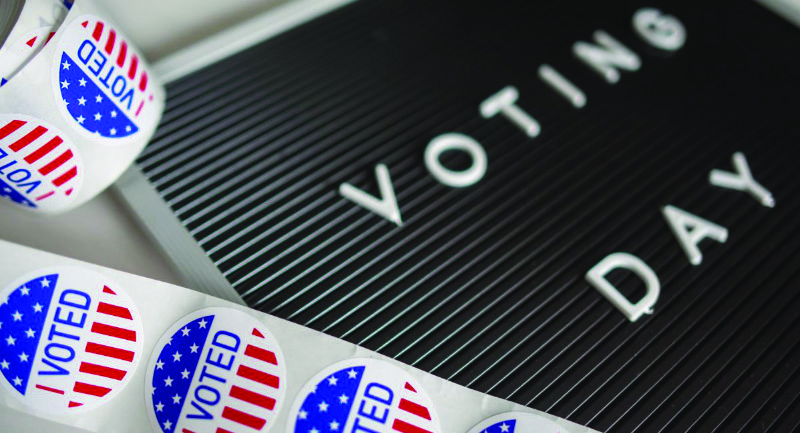What the 2024 Election Results Could Mean
The 2024 presidential election has left the nation grappling with complex and contentious issues, ranging from political violence and gender roles to immigration policies and environmental priorities.
In a media briefing on Nov. 8, hosted by Ethnic Media Services, a panel of experts analyzed the results, emphasizing that a diversifying electorate doesn’t necessarily equate to progressive outcomes.
Speakers
![]()
- Kelly Dittmar, Director of Research, Center for American Women and Politics, Rutgers University
- Professor Robert Pape, Professor of Political Science, University of Chicago and Founder and Director, Chicago Project on Security and Threats (CPOST)
- John C. Yang, President and Executive Director, Asian Americans Advancing Justice | AAJC
- Vanessa Cardenas, Executive Director, America’s Voice
- Ben Jealous, Executive Director, Sierra Club. Former President and Chief Executive Officer, National Association for the Advancement of Colored People (NAACP)
Political Violence: A Persistent Threat
Political violence remains a looming concern. “We seem to assume that either we can predict it or else it’s not going to happen at all, which is why we’re constantly surprised when it does happen,” said Dr. Robert Pape.
The Justice Department recently revealed an alleged Iranian government-backed plot to assassinate President-elect Trump before the election, underscoring the volatility of the current political climate.
“We’re in a tinderbox of a country,” warned Pape, cautioning that more incidents could occur before Trump’s inauguration on January 20 or during his administration’s early days, especially with plans to enforce aggressive immigration policies targeting sanctuary cities like Chicago, San Francisco, and Los Angeles.
“Political violence operates like a wildfire. We can measure the material that can combust, but we can’t predict the triggering lightning strikes, thrown cigarette butts, the unattended campfires.”
The Role of Gender in Voting and Leadership
Persistent gender disparities in voting patterns and perceptions of leadership were also highlighted. According to 2024 exit polls, 54% of women supported Harris, compared to 44% of men, continuing a long-standing gender gap in political preferences.
However, analyzing these trends requires nuance, said Kelly Dittmar. For instance, while a majority of white women voted Republican, over 90% of Black women supported Harris.
“We talk about the gender of the voters, but we also have to recognize the ways in which gender plays a role in who we’re willing to vote for,” Dittmar noted, adding that cultural narratives about masculinity and femininity often shape electoral outcomes.
A Public Religion Research Institute survey revealed that 73% of Republicans believe society has become “too soft and feminine,” compared to just 16% of Democrats.
“It’s less about Harris’ identity, and more about why a man tapping into grievances about threatened masculinity did not disqualify him from winning,”
Immigration and the Asian American Vote
Immigration policies and economic concerns were pivotal issues in the election, said Vanessa Cardenas.
“Economic issues overtook everything.” she explained, referencing exit polls that found Trump was widely viewed as better equipped to handle the economy.
Cardenas also noted the increasingly hostile rhetoric surrounding immigration. A report from America’s Voice revealed nearly $1 billion spent on Republican ads attacking immigration policies this year alone.
For Asian Americans, a demographic with a high proportion of immigrants, family-based immigration policies remain crucial. According to Pew Research, 82% of Asian American immigrants support prioritizing family reunification.
The AAPI community values immigration reform, but their top concerns—jobs, inflation, and healthcare—align with those of the general electorate.
Green Jobs and Economic Revival
Economic revitalization through clean energy was another key topic, particularly in light of the Inflation Reduction Act, which has driven significant investments in renewable energy and manufacturing.
From 1994 to 2014 the U.S. lost over 80000 manufacturing plants due to NAFTA.
“That means that most Americans now live where there used to be a factory, and when that factory shut down, what shot up was despair, poverty, joblessness, drug abuse and death from suicide,” said Ben Jealous. “We’ve got to get back to the basic American formula of building an economy that lifts all boats by doing what we’ve always done: designing new things by following the science, then building them here.”
The clean energy sector has been a bright spot. As of August 2024, U.S. companies reported 646 new clean energy projects, creating over 334,000 jobs and generating $372 billion in investments, according to Climate Power data.
“In many red states, voters can be divided on whether or not they want clean technology, but they’re united on wanting it produced there, because they understand that their fortunes are tied to it,” he added. “Trump can say what he wants, but this is the future, and people aren’t going back.”
A Complex Future Ahead
The 2024 election has laid bare the fractures and possibilities within America’s social and political fabric. While challenges like political violence, gender inequities, immigration reform, and climate change remain contentious, they also represent opportunities for progress.


